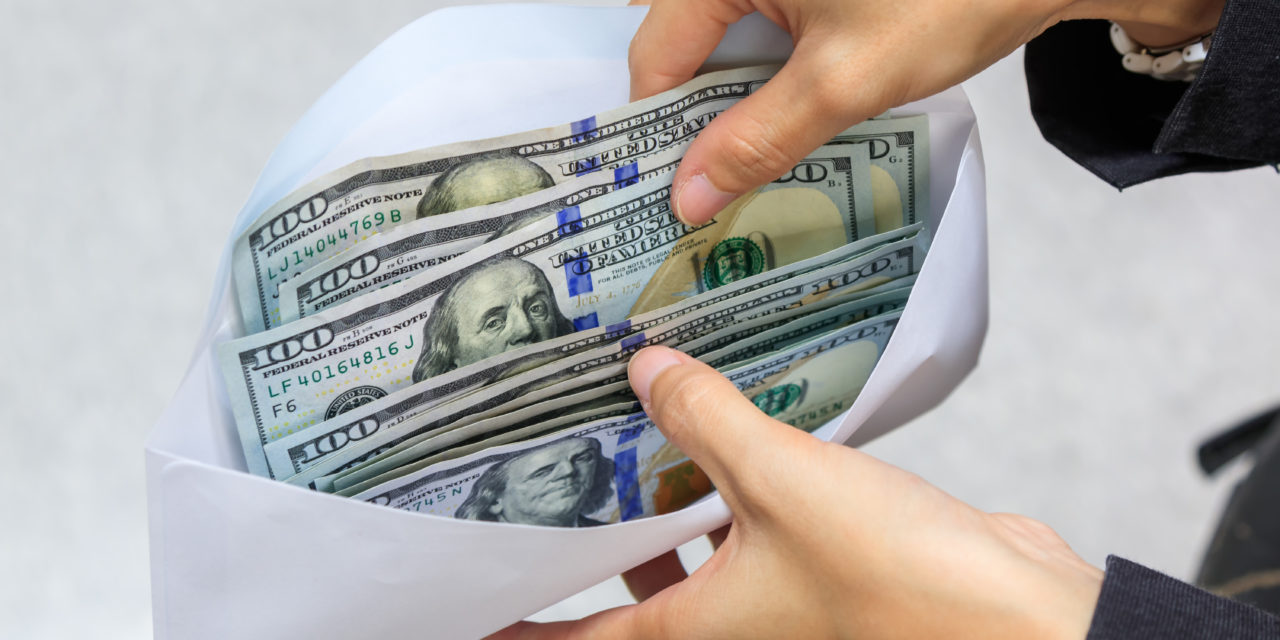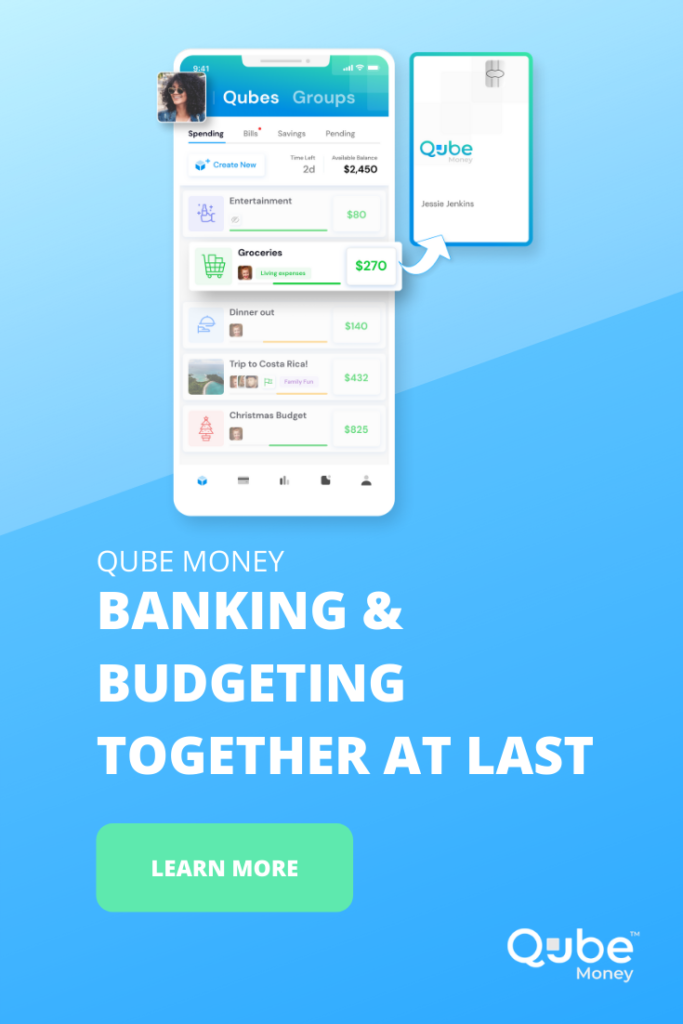If you’re thinking of using the cash envelope budgeting system, prepare to dedicate a ton of time and effort to the cause. Not only do you have to keep track of your money, but you also spend more time collecting it from the bank and distributing it to your envelopes.
When you monitor your finances, you become better at managing them. But how easy is it to maintain a bunch of cash envelopes? A whopping 74% of Americans ages 23-38 use a budget, but fewer are incorporating cash. In fact, less than half of American consumers used cash for purchases under $20.
Technology is making it easier to ditch physical currency in exchange for digital systems. Three in 10 Americans say they make none of their weekly purchases using cash. If you’re on the fence about cash envelope budgeting, here are 10 reasons why budgeters don’t like it.
1. It’s More Difficult to Track
One pitfall of cash envelope budgeting is it can be challenging to track. You can rush off to the grocery store after a long day only to realize you have forgotten the envelope meant for groceries.
As a result, you end up pulling money from another envelope. It can get confusing this way because you don’t have the exact change needed to reconcile the envelopes. Plus, you need to remember how much money you had in the envelope and know how much is left.
It also leaves room for questions on how you should save for larger purchases, like furniture, vacations, or a new car. You would have to keep a ton of cash in an envelope and hide it in a safe place, whereas a digital account could offer more protection.
2. It’s Risky Carrying Cash
A significant reason why budgeters are against cash envelope budgeting is it’s risky to carry cash. One quarter (24%) of people had cash stolen in the past year. If your purse or wallet gets stolen, the money is gone and never seen again.
Related: 11 Disadvantages of Using Cash
Not only is it easier to steal cash, but it’s also easier to lose it. Imagine misplacing an envelope with $800. You’d spend hours tearing apart your house to find it. If you don’t have a designated spot to park your envelopes, you run the risk of misplacing them.
3. Doesn’t Work Well With Couples
It’s harder to work inside the confines of cash envelope budgeting when a partner is involved. While you may manage it as a single person, adding a significant other can make it difficult to track. Plus, your partner may not follow the rules because it’s inconvenient. What if they run off with the restaurant envelope when you need it to pick up dinner?
Cash envelopes can be bulky, too. It may work well if you carry a purse or briefcase with you, but what if you like using a money clip? A cash envelope won’t work for those who place a wallet in their back pocket when they run out for errands.
Related: How Qube Money Helps Couples Budget
Speaking of errands, not knowing who will run errands that day can create more frustration when cash is involved. You have to coordinate who has the right envelope and on what day. With so much going on in the world, this is one headache inducer you can leave behind.
4. You Can’t Spend Online
Most major bills, like rent, utilities, internet, and your cell phone plan are paid online. You could do it old school by writing a check and sending it in, but that still goes against the cash envelope budgeting system. Those who use cash envelopes still have to transact digitally for bills.
In addition to not being able to pay bills online, you can’t shop online either. Think of all of the conveniences online shopping has to offer. Cash envelopes omit the ability to order anything online, including takeout, diaper delivery, hotel reservations, and Amazon orders.
5. It’s A Pain Going to the Bank
These days, going to the bank is much more convenient to do online than in person. Cash envelope budgeting only works when you have physical cash in hand, which means you’ll be going to a physical bank more.
As a result, this errand takes time out of your day, especially if you want an exact amount with smaller bills. You’ll end up having to go inside to ask a teller for help and do it all during operating hours.
Related: Strengths & Weaknesses of Online Digital Banks
Most employers pay via direct deposit, so you’re pretty much forced to head to the bank every time you’re paid to withdraw the money. Unless you work off of cash tips, like a restaurant server or bartender, plan on stopping by the bank.
6. Transactions Take Longer
Using cash takes longer. You have to count out your bills then wait for the cashier to count your change, which can add time to a busy schedule. Don’t forget you miss out on time savers like grocery pick-up or curbside delivery when you go all-cash.
Think of everyday purchases, like filling up the tank. Gas stations aren’t cash-friendly since you have to go inside and pre-pay first. A digital system like Qube Money helps you make quick transactions and still stay on budget.
7. Certain Places Don’t Take Cash
As American retailers embrace faster transaction methods, many stores forgo cash altogether. Digital transactions are more straightforward, and it reduces theft by not having money in cash registers. If that’s the case, you run the risk of walking into a store that can’t do business with you.
Cashless systems are beneficial to businesses because they don’t have to worry about paying bank fees or pay for armored carriers to pick up the money. For cash lovers, this can make it frustrating to make transactions.
Think about trying to pay for your rent in cash. There’s no proof you made a payment like there would be if you paid by check or online. Landlords may not accept cash payments, either. If they do, make sure you get a signed receipt outlining your landlord has received payment.
8. Getting the Wrong Change From Cashiers
Ever stop to count your change after the cashier hands it back to you? We take change without a second thought, which could have consequences. Even if the short change is unintentional, it could mess up your cash system.
Cashiers aren’t handling cash as much either. In a study by the Federal Reserve, 28% of consumers use debit cards, and 23% use credit cards. Cash use has been on a decline, so getting change from cashiers means you’ll have to count it to verify it’s correct.
9. Dealing With Loose Change
Speaking of change, you’ll have more of it when you’re only working with cash. This can be difficult when you accumulate coins throughout the month. Rather than weighing yourself down with coins, you might be tempted to toss the change in a piggy bank.
Although saving change is an excellent way to save money this year, you won’t earn any interest like you would in a savings account.
10. Using An ATM Has Limitations
Getting $5 and $10 bills out of an ATM is nearly impossible, so unless you go to a bank, it can be challenging to break down bigger bills for the envelopes.
Keep in mind ATMs have limits on how much money you can withdraw at one time, which doesn’t make cash envelopes any easier. ATMs can be risky, too. You run the risk of thief catching a peep at your passcode or swiping the money from you altogether.
Final thoughts on cash envelope budgeting
Cash envelope budgeting can help you curb your spending when it feels out of control. It’s powerful handing over a $20 bill versus a piece of plastic, which makes you think twice about spending. However, the system is cumbersome and becoming a thing of the past.
If you want to budget while embracing a digital world, look for online tools that encourage responsible spending. Digital spreadsheets and apps that sync up to your accounts can help you reduce debt and get after your financial goals.
Read: 5 Reasons Budgeting Apps Don’t Work For Most People
What budgeters are using instead
Instead of going through the hassle of taking out cash and divvying it into envelopes, budgeters can opt for a seamless system that divides your money into digital cash envelopes.
Qube Money helps you spend with purpose all from your phone. Find out more about the Qube membership.






![Everything You Need to Know About the Cash Envelope System [+ Sample Budget]](https://blog.qubemoney.com/wp-content/uploads/2020/01/1-20-20-the-cash-envelope-system-blog2-440x264.png)

